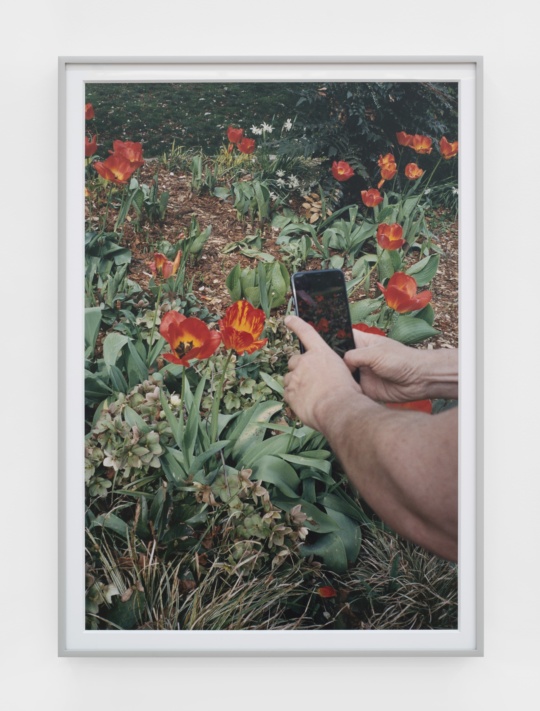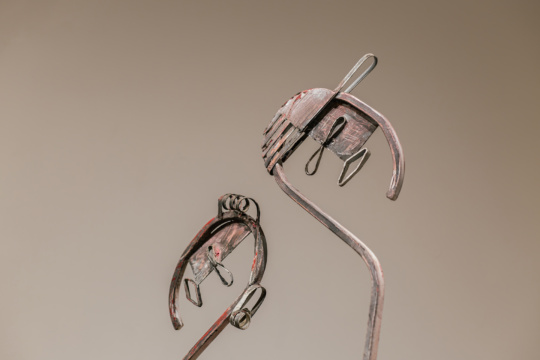[cont.]
Her children considered the erotic paintings an embarrassment and refused even to look at them. “Mom, these are gross.” “Mom, why do you have to paint these? Can’t you paint flowers?” “Mom, my friends think you are a pervert.” The young can be so conservative, aspiring to be cookie cutter replicas of their friends, to be accepted into a tribe, and thus will contort themselves at great lengths just to fit in. Every group has rules and expectations, regardless of age.
Every group does indeed have its rules. In the gallery world, anyone over thirty has difficulty finding a gallery since galleries expect a history of development, a visible progression up the food chain. For women over thirty, it’s damned near impossible to be taken seriously. Too many directors think of women launching an art career at that age as seeking something to keep them busy once the children are off in school: hobbyists. Teresa, after being called a soccer mom artist, was terrified of this. She had a quote from Shakespeare on her studio wall: “Nothing is so common-place as to wish to be remarkable.” This helped her keep the sarcasm of the review and her desire to create in perspective. Everyone wants to be special and for some reason, many people were certain they could be special in art. How hard could slopping around some paint be, right? Teresa’s work, though, had a unique perspective, a quirky energy, although when Odessa proclaimed herself delighted with the paintings, Teresa felt quite skeptical in a “is this really happening” sort of way. After so many years in isolation, after the incident with the collector, such hearty compliments seemed suspect. What was the catch? She’d heard stories about dealers demanding certain color arrangements or certain sizes from their artists. Or expecting certain quantities. She waited but Odessa made no such demands.
So Teresa painted as she always had, working not from what she felt as much as what she observed. Painting was her adult time, her vehicle for expressing the raw truths never permitted around children. As hard as she and every other parent tried to shield their children, everything was about sex. Lust was our culture’s religion. It shaped all forms of communication, advertising and entertainment. Teaching the seventh grade, raising an exquisitely beautiful daughter made her hypersensitive to this, to the siren call of sex. Watching her daughter turn eleven was the initial inspiration for the work. Watching her blush with happiness at being noticed and having complete strangers pay her compliments, and then watching that joy shift into a kind of panic as she had to learn how to fend off ever increasing advances. Leering really is a form of intimidation. Watching her daughter learning to deflect it was painful and powerful. Watching her son go through the parallel process was quite different. At age ten, he was the brunt of all the jokes because he was small. He would come home with massive stomach aches and hated school. He was teased and constantly accused of being queer. Older boys tried to trap him in the bathroom stalls. When one boy dunked him in a toilet, her husband enrolled him in karate classes to give him confidence and some self preservation skills. By fourteen, the dynamic shifted as he grew tall and strong to become the best basketball player the school had ever had. The transformation had pleased her husband enormously but she was unsure. The girls threw themselves at him and she tried to instill restraint and respect in him. Her son wanted so much to believe the hype, to think of himself as super special, and became angry when she insisted that since he still put his pants on one leg at a time, he had to help with chores. The night after his 16th birthday, he came back badly drunk from a party and she grounded him for a month, forcing him to stay at home from dinner time on, taking away all car privileges and his cell phone. The whining and badgering were relentless but she refused to budge. The next weekend two of his basketball buddies were arrested for statutory rape. The girl wasn’t quite fifteen, the youngest girl on the cheerleading squad. This budding sexuality was not easy to navigate, even without the disorientation of alcohol. The lust, the desire to fit in – both were so mangled together in all of them.
These observations gave her work a hesitancy which most viewers thought were formal struggles, a matter of finding the right angle or color. As she painted, though, the struggle was with finding the gesture right for the anguish, the right color for raw need.
And now emptiness had replaced sex as her subject matter. Her friends much preferred the new work. She suspected that their enjoyment was due more to the absence of embarrassingly graphic sexual content than actually liking the new imagery. Regardless, their profuse compliments made the evening magical. Even without the gushing comments, being here was a welcome break from being around children. She saw friends from her college years who spoke with large vocabularies and complex sentence structure. Such a pure pleasure letting her language spread its wings.
Her mother found any pleasure suspect and would hate this room and its opulence. The high polish of the furniture, the ruffles around the pillows, the thick pile of champagne carpeting. She fell asleep remembering her mother clasping the old family Bible in the nursing home as if stroking the broken spine of the book would in and of itself guide her to a kinder afterlife, to eternal bliss. Her mother spent her entire life terrified of the wages of sin, cordoning the forbidden off in the careful building of a delusion so sweet and complete that fear and doubt would be banished outside. But her mother was fading into raw fear. All of those rooms constructed of cast iron rules and absolute faith in the golden gates of heaven were emptied of all that certainty by the plaques and tangles in her brain. Watching her mother’s mind go was the inspiration for the new work. Watching her memory empty out, decades lost in a single month, inspired the new erasure technique. Her poor mother was so angry and confused that her face calmed into some serenity only in the midst of deep sleep. She wouldn’t need the Bible quite so much as a prop if she had any confidence she could remember the lines to lead her to the right ending. Now nearing the end, her mother barely remembered her own name and thought Jesus was the hairdresser.
Count your blessings, her mother always told her. It was good advice, actually, focusing on half full over half empty. Whistling in the dark to keep the fear at bay. It was so easy to be overwhelmed and neglect that advice. After take-off, flying over the ocean, Teresa leaned back. What she was most thankful for that particular moment was the validation of Odessa’s support and the red dots of sales. To work for so long without any recognition was, she knew, mostly her own fault. She shouldn’t have let that initial review so totally undermine her sense of value. It was a recurring problem in her life, not just in the art world. The confidence she worked so hard to instill in children was a quality she had always felt she lacked. It was as if in elementary school she missed the day where everyone else learned how to stand up for themselves and interact with strength. She taught in order to insure that no child within her reach missed that lesson.
Leaving the restricted area at the airport, pulling her brand new luggage behind her, Teresa was surprised to find that her husband and their two children had driven down to San Bruno and were all waiting for her, each clutching a handful of pink roses. The smiles and excitement meant more than the flowers, although she would uncharacteristically dry them and hang them in her studio until they fell apart and then save the petals. Wrapped in her family’s arms, she decided she would have to revise her definition of support which should surely include moments like this.
……………………..
Return on Wednesday for the next chapters of Just Like Suicide.




